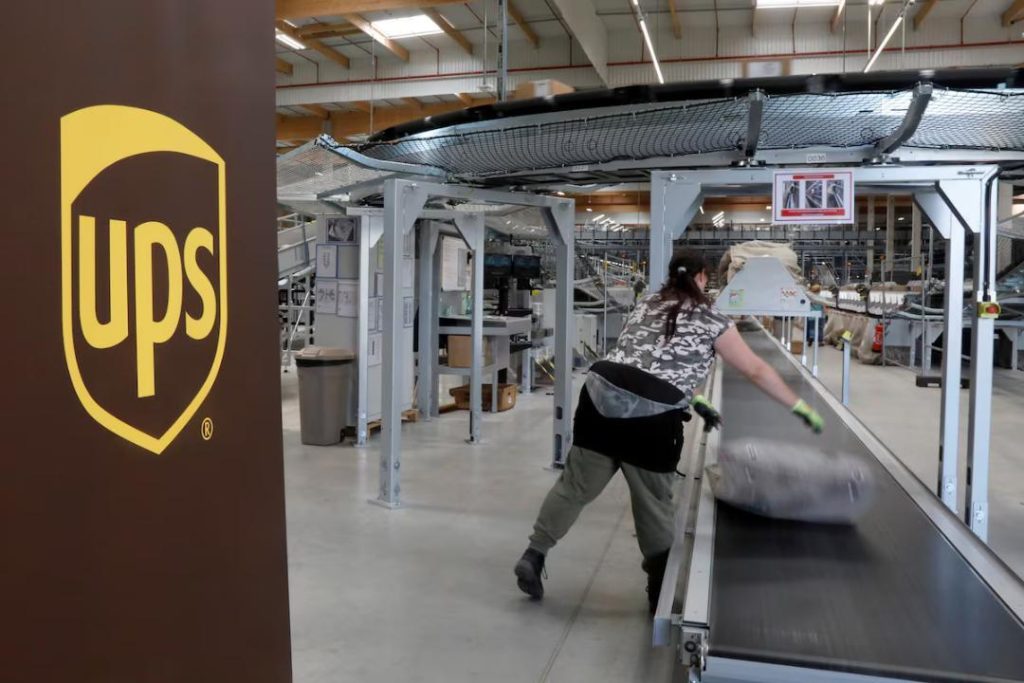
UPS to Cut 20,000 Jobs to Lower Costs & Prepare for Potential Pullback from Amazon
In a move aimed at reducing costs and preparing for a potential pullback from its largest customer, Amazon, United Parcel Service (UPS), the world’s largest package delivery firm, announced on Tuesday that it will cut 20,000 jobs. The company will also shut 73 facilities as part of its efforts to reconfigure its network and streamline its operations.
The job cuts, which account for about 5% of UPS’s total workforce, will primarily affect non-unionized employees, including part-time and seasonal workers. The company plans to offer severance packages to affected employees, which will include career transition services and outplacement support.
According to a statement released by UPS, the decision to cut jobs and close facilities is part of the company’s efforts to “reconfigure its network and reduce costs across its business.” The company believes that these actions will enable it to better position itself for the future and adapt to changing market conditions.
“We are taking decisive and timely actions to address the challenging business environment and position our company for long-term success,” said UPS CEO Carol Tome. “The actions we are taking to reconfigure our network and reduce cost across our business could not be timelier.”
The job cuts and facility closures are a response to the changing landscape of the logistics industry, which has been disrupted by the rise of e-commerce and the increased competition from smaller, nimbler delivery companies. At the same time, Amazon, which is UPS’s largest customer, has been looking to reduce its dependence on external logistics providers and build its own delivery capabilities.
In recent years, Amazon has been expanding its own logistics network, acquiring companies such as Whole Foods Market and building its own delivery capabilities. This has led to speculation that Amazon may reduce its reliance on external logistics providers, including UPS.
By cutting jobs and closing facilities, UPS is seeking to reduce its costs and increase its efficiency, making it better positioned to compete in a rapidly changing market. The company is also looking to improve its ability to adapt to changing customer needs and preferences, including the growing demand for same-day and one-day delivery.
The job cuts will affect employees in a number of areas, including customer service, sales, and operations. The company will also be closing a number of facilities, including package sorting centers, delivery hubs, and other support functions.
While the job cuts and facility closures are a significant blow to UPS, the company is still one of the largest and most successful logistics providers in the world. With a global network of over 500,000 employees and a fleet of over 120,000 vehicles, UPS is well-positioned to continue to compete in the rapidly changing logistics industry.
In addition to the job cuts and facility closures, UPS is also investing in new technologies and innovations to improve its operations and better serve its customers. This includes the use of artificial intelligence, robotics, and other advanced technologies to improve package sorting and delivery efficiency.
The company is also expanding its alternative fuel vehicles and implementing a number of sustainability initiatives to reduce its environmental impact. This includes the use of electric and hybrid vehicles, as well as the development of more efficient packaging materials and delivery routes.
In conclusion, UPS’s decision to cut 20,000 jobs and close 73 facilities is a significant move aimed at reducing costs and preparing for a potential pullback from its largest customer, Amazon. While the job cuts and facility closures are a blow to the company’s employees and communities, they are also a necessary step to ensure the long-term success of the company.
As the logistics industry continues to evolve and change, companies like UPS must be willing to adapt and innovate in order to remain competitive. By cutting costs, improving efficiency, and investing in new technologies and innovations, UPS is positioning itself for long-term success and ensuring that it will continue to be a major player in the logistics industry for years to come.






